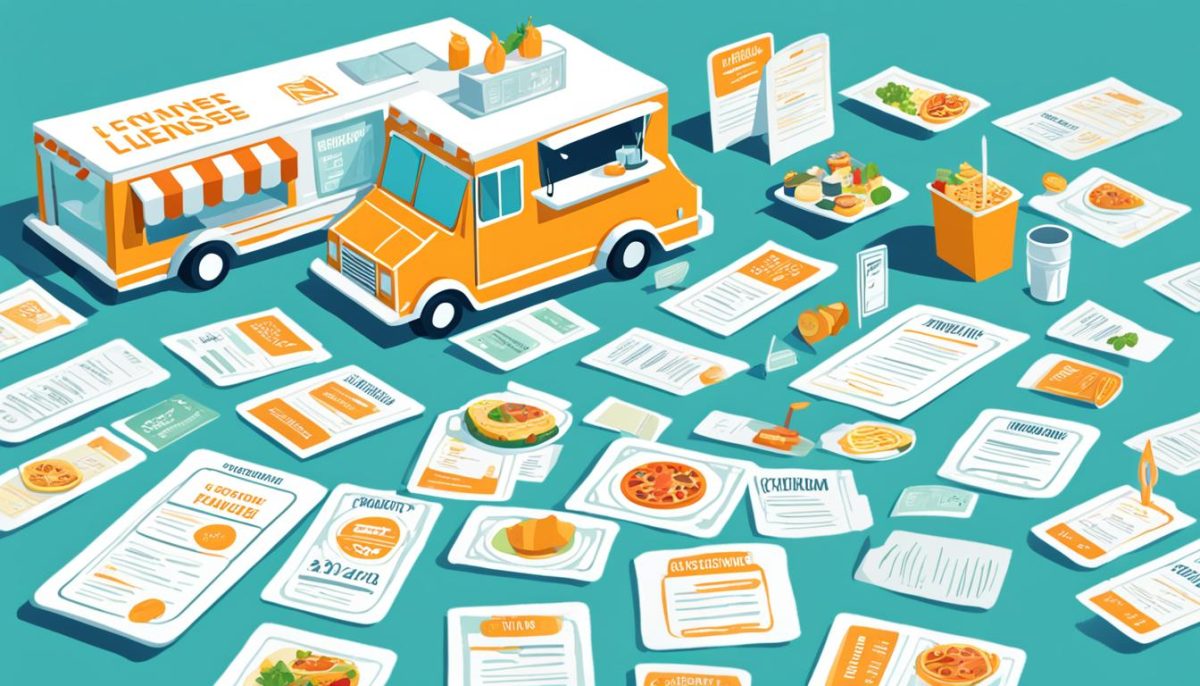Welcome to our comprehensive guide on how to start your own food truck business. If you have a passion for food and dream of launching your mobile culinary venture, this is the perfect place to begin. Starting a food truck business offers flexibility, creativity, and the opportunity to bring delicious flavors to the streets.
Whether you’re an aspiring chef, a seasoned restaurateur looking for a new challenge, or simply someone who loves the idea of cooking on wheels, we’ve got you covered. In this guide, we will walk you through the essential steps from planning to execution, ensuring you’re well-prepared to embark on this exciting journey.
Are you ready to turn your culinary passion into a thriving business? Let’s dive in!
Create a Solid Business Plan
Before diving into the food truck industry, it’s crucial to create a solid business plan. A well-crafted business plan will serve as a roadmap to navigate the challenges and opportunities that lie ahead. It not only outlines your goals and objectives but also provides a clear understanding of your financial projections and marketing strategies.
Market Research
Market research plays a vital role in the success of any business, including food trucks. By conducting thorough market research, you can gain insights into the industry landscape, understand consumer preferences, and identify potential competitors. This information is invaluable in determining the viability of your food truck business and making informed decisions.
Start by identifying your target audience. Who are the people you want to serve? What are their preferences, behaviors, and demographics? By understanding your target audience, you can tailor your menu, branding, and marketing campaigns to appeal to them effectively.
In addition to understanding your target audience, it’s essential to research the food truck market in your area. Are there existing food trucks catering to similar cuisines or offering similar experiences? What is the level of demand for food trucks in your location? Are there any local ordinances or regulations that could impact your operations? Answering these questions will help you assess the market potential and identify unique selling propositions for your food truck.
Developing the Business Plan
Once you have gathered the necessary market research insights, it’s time to develop your food truck business plan. Your business plan should include the following key components:
- A description of your food truck concept and its unique value proposition
- A market analysis, highlighting trends, competition, and target audience
- Financial projections, including start-up costs, operational expenses, and projected revenue
- A marketing and sales strategy, outlining how you plan to attract and retain customers
- Operational details, such as sourcing ingredients, managing inventory, and ensuring compliance with health and safety regulations
Remember, a well-written and comprehensive business plan doesn’t just serve as a guide for yourself but can also be instrumental in securing funding from lenders or investors. It demonstrates your professionalism, strategic thinking, and commitment to success.
| Benefits of a Solid Business Plan: |
|---|
| 1. Provides a roadmap for your food truck business |
| 2. Helps you understand the market landscape and identify target audience |
| 3. Guides financial decisions and projections |
| 4. Demonstrates your commitment and professionalism |
| 5. Attracts potential investors and lenders |
Legal Requirements and Permits
Starting a food truck business requires knowledge of the legal regulations and obtaining the necessary permits and licenses. Understanding and complying with these legal requirements is essential to ensure the smooth operation of your mobile culinary venture.
One of the first steps is to obtain the required permits and licenses. This includes securing a food truck permit, which allows you to operate your mobile kitchen in specific locations. The process of obtaining a food truck permit may vary depending on your location, so it’s important to research and reach out to the local government agencies responsible for issuing these permits.
In addition to the food truck permit, you may also need to obtain other licenses and permits such as a business license, health department permit, and a seller’s permit. These licenses ensure that your food truck business complies with health and safety regulations and operates legally.
The health department permit ensures that your food truck meets the necessary health and sanitation requirements to serve food safely. It may involve inspections of your kitchen space, equipment, and food handling practices. Adhering to health regulations not only ensures the well-being of your customers but also protects your business reputation.
The process of obtaining permits and licenses can be complex, but it’s crucial for running a successful and compliant food truck business.
Before applying for permits and licenses, it’s important to have all the necessary documentation in order. This may include your business plan, proof of insurance, and documentation demonstrating your compliance with food safety requirements. It’s recommended to consult with an attorney or a local small business center to ensure you have all the necessary paperwork and requirements.
Failure to obtain the required permits and licenses or comply with health regulations can result in fines, penalties, or even the closure of your food truck business. Therefore, it’s imperative to prioritize legal compliance from the start and maintain a thorough understanding of the regulations that apply to your specific location.
Summary:
- Obtaining the necessary permits and licenses is a crucial step in starting a food truck business.
- Key permits include the food truck permit, business license, health department permit, and seller’s permit.
- Complying with health and safety regulations is essential to ensure the well-being of your customers and your business reputation.
- Consulting with an attorney or a local small business center can provide guidance on the legal requirements and documentation needed.

Setting Up Your Food Truck
Now that you’ve taken care of the legal requirements, it’s time to focus on setting up your food truck for success. The key factors to consider include designing an efficient kitchen layout, selecting the right food truck equipment, and creating a captivating branding strategy.
When it comes to the kitchen layout, space optimization is crucial. Consider the flow of your cooking process, ensuring that your food truck’s layout allows for easy movement and efficient workflow. Maximize countertop workspace, have designated areas for food preparation and cooking, and ensure easy access to necessary utensils and appliances.
Choosing the right food truck equipment is another vital aspect. Invest in high-quality, durable equipment that suits your menu and cooking style. From grills and deep fryers to refrigeration units and food warmers, ensure that your equipment meets industry standards and can withstand the demands of a mobile kitchen.
Additionally, don’t overlook the power of branding in attracting customers. Create a memorable and eye-catching brand identity for your food truck, starting with a catchy name, logo, and vibrant color scheme. Utilize social media platforms to promote your brand and engage with your target audience. Remember, a strong brand presence can set you apart from the competition and entice customers to try your delicious offerings.


